

issue 20
Young People



They
deserve the opportunity to make the right choices, something that is only possible once they have the right skills.
For this issue, we’re focusing on young people and how we can help them become the best version of themselves. There’s no denying that we now live in a complex world that is not easy to understand whatever age you are. But when you’re young and taking your first steps into finding your place in the world, it’s very easy to feel out of your depth and maybe take a wrong turn, especially if you have not had the chance to develop the right set of skills.
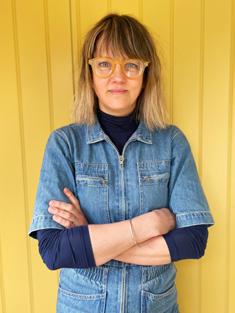
Jenny
Whether our education system is currently providing our young people with these skills is very much up for debate (certainly speak to Kunle about his views here). But there are inspiring people out there working hard to plug any gaps. They are all arming our youngsters with the life skills they need to confidently navigate the world and make a positive impact on our society.
And this journey starts young, as Susan Barry’s article so wonderfully demonstrates. Susan shines a light on the power of a mother spending quality time with their child before they hit school age. While this may sound like a very simple thing to do, there are many mums out there who are unable to provide this most basic of needs for their young child. Thankfully, there are charities out there stepping in to help change this.
We catch up with Rachel Higginson, founder of Finding My Voice, a company that helps young people figure out who they really are and who they want to be in this world. When you consider that online anyone can be anyone and people are often not who they seem, it’s easy to see why this kind of work is so vital. Here, she provides invaluable insight into why she does what she does; how she and her team guide young people to achieve a deep selfawareness and the difference their work has made to young people up and down the country.
But let’s be honest, there is no getting away from the fact that for most young people the online world is as much a part of their lives as the real world, if not
more so. That’s why we caught up with Gemma Holbird and Sarah Jane Sauntson of The Conversation. They recently launched a Cyberwise campaign in their local area, setting out clear guidelines for smartphone usage amongst children and young people. The article is an extremely useful blueprint for parents who may be struggling to get a handle on their children’s smartphone habits….and their own.
Our final contributor is Fran Findlater OBE of the charity No Going Back (NGB). As she says in her article, “We all make mistakes when we’re young. For some, those mistakes come with a criminal record… and the consequences can last a lifetime”. That’s why NGB provides individuals with convictions with the support they need to progress into work and reduce the chances of reoffending. They deserve the opportunity to make the right choices, something that is only possible once they have the right skills.
One skillset that particularly stands out for Kunle as being lacking in our current education system is personal finance. As many of you will already know, Kunle is campaigning hard for financial skills to be explicitly taught as a standalone subject in schools. Here, he gives us an update on his campaign’s recent successes and what he hopes to achieve long term.
As always, we hope these articles will be the springboard for conversation and discussion; will spark new ideas and give you a different perspective on the world we live in. We’d love to hear your thoughts.
All About The Paper

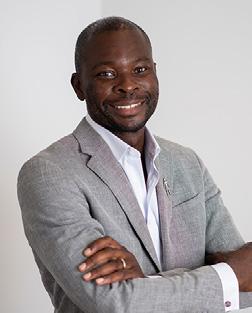
By Kunle Olafare, Chief Executive, SK Financial
Oh, it’s Autumn. My favourite season. I’ve got memories of a good Summer of sport. I hope that you have some lovely memories of your Summer as well.
For many students, it will be the start of a new academic year; maybe in a new location too. And talking of academics, I am continuing to do what I can to help get personal finance on the GCSE curriculum. Interestingly, the interim findings from the Department of Education’s ‘Curriculum and Assessment Review’ published in March this year found parents and young people want to see this too. 34% of 14 – 16 year olds and 43% of their parents said that they wished they / their child had spent more time learning about ‘finances and budgeting’ while in Years 7 to 10.
Finances and budgeting came top of the list when it came to which topics young people should spend more time learning about in school. It saw off competition from digital skills, interview skills, sport and traditional academic subjects. Clearly, there’s a gap here that is being felt by everyone.
I have spent time with a variety of people and companies, as well as time in schools to get their views on this matter. I’m not looking for confirmation bias here. I’m just struggling to understand why we’re setting students up to fail in this area. All answers are welcome!
“
It has been encouraging to see that there are a number of companies who are active in educating youngsters in personal finance. It is also pleasing to see financial professionals giving up their time to educate students in schools on personal finance.

Once we enter the world of paid employment, we enter the world of earning money. I believe that budgeting is the ninth wonder of the world (with compound interest being the eighth). And yet, we do not arm our youngsters with the necessary skills to successfully manage their money.
How do you learn how to make sure that there Is more money at the end of the month rather than more month at the end of the money?
Wouldn’t it be useful for a young person to understand the concept of compound interest?
The earlier that this topic is taught, the easier it is for someone to understand the importance of saving as early as possible.
It is the same for learning the principles of budgeting. The value of not spending more than you earn is crucial. It’s a key reason why people get themselves into debt they cannot pay off. When you’re earning £100, why are you spending £110?
These and other simple concepts need to be taught in our schools, starting from primary.
It has been encouraging to see that there are a number of companies who are active in educating youngsters in personal finance. It is also pleasing to
see financial professionals, or interested individuals, giving up their time to educate students in schools on personal finance. We have been “connecting the dots” by compiling these learning resources into a one-page document called “1 Hour A Year”. We’re asking people in the financial industry to give just one hour a year to help teach younger people about money. And we’ve put all the resources needed into a handy one pager. If you would like to receive a copy of this guide, please do email me.
I have also signed up to teach this subject in a number of local primary schools. And just to mix things up, I plan to do some reading sessions using Will Raine’s book: 'Grandpa’s Fortune Fables'. It’s a fun way for younger people to understand the importance of looking after money.
With my good wishes,

Q&A with The Conversation's Sarah Jane Sauntson and Gemma Holbird
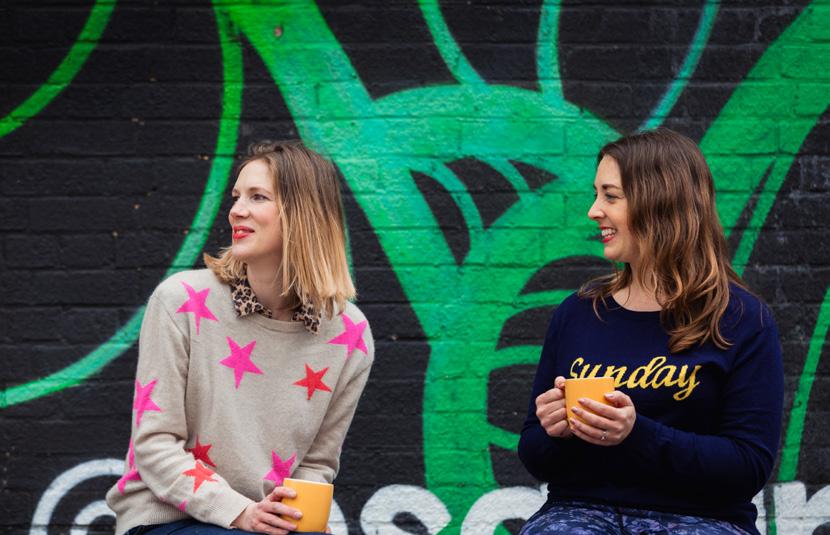
Hardly a day goes by without an attention grabbing headline about the damage smartphones, social media and time online is doing to our young people. Over the school holidays, we even saw the launch of SageMobile, a smartphone which won’t allow you to download internet or social media apps. At almost £100 a month, the company is certainly capitalising on the growing tide of parental fear. But is this really the answer?
Here, we catch up with Gemma Holbird and Sarah Jane Sauntson from The Conversation. The Conversation is a not-for-profit business that focuses on sex education, relationships, identity and mental health workshops for young people. But over the last few years, they have had to introduce cyber wisdom programmes in schools and for parents to help them navigate online access.
SKQ: Why did you feel the need to introduce cyber wisdom programmes?
Sarah: Through our work, we were finding that regardless of the topics we were discussing, pornography or body image or sex education, the root cause of any issues here was pretty much always social media and online access. And that's why we decided to start our cyber wisdom work.
Gemma: We initially worked in secondary schools, but we quickly realised smartphones, particularly, but digital access in general, were having a significant impact on primary school children as well.
Sarah: And it wasn’t just about what kids were accessing online. It was how time spent on digital devices and smartphones in particular was, and still is, changing their habits and behaviours. It's changing how they manage emotions. It's changing how they
manage frustration, boredom, their ability to communicate. It's having a huge impact on children and young people, and we just thought we've got to do something about this.
Gemma: So our cyber wisdom work is about enabling children and young people to use these devices as tools and not be used as products themselves. Because that’s essentially what social media and smartphones are doing. They are using our children as products. The apps are free so that as many people as possible can access them, making the tech giants as much money as possible. We want children and young people to be aware of this.
We also realised that the work we were delivering in schools was pretty much void unless we were reaching and educating the parents as well. As such, we’ve been doing a lot of parent support and parent workshops and also launched our Cyberwise campaign.
SKQ: Could you tell us a little more about the specific recommendations of your Cyberwise campaign?
Gemma: What we hope to do is to spearhead a kind of significant cultural shift, around how parents navigate the digital world with their children and young people.
Our parent pledge sets out our key aims. It's no smartphones for primary age children, they should not get smartphones until Year 7 (11-12 years old). And initially, we said no social media until at least 13, but now we personally believe 15 is a better age, and research shows 15 is a better age to engage with social media. But our main aim at the moment is to push it out of primary education. If we set the age limit too high, that might not do that as effectively. And then finally to use parental controls until 16, at least, to make sure that you know you've got some element of supervision. It's just guidance. It's obviously totally optional. But we felt that parents were calling out for someone to say, this is probably the way you should start it. You should put these boundaries in and these limits on.
Sarah: There was a big survey that found that if parents could change one thing about their children, it would be that they were on devices less. But they just didn't know how to go about it. It's like a freight train that they just got on and can't get off because everyone's on the same train. And you know, you ask a kid “What do you want for Christmas?” and the only thing they want is a mobile phone. And they're eight, and so parents felt they had to give them one. They just weren't empowered to set clear boundaries. We hope our parental pledge will help with this.
Gemma: And then when we work in primary schools and are educating the children, we hinge a lot of the work we’re doing on four key principles. Devices belong in living spaces, not sleeping spaces; devices stay at home, so don’t take them to playdates or to the park; turn them off at least an hour before bed time and finally, most of your day should be spent off screen.
SKQ: These are great guidelines for children and parents alike. So, why do you think that parents give school children smartphones?
Gemma: There's been a lot of conversation spearheaded by Jonathan Haidt. And in his book, 'The Anxious Generation', his point is we are under protecting children and young people in the digital world and over protecting them in the real world. And we feel this really does sum up the key issue.
What we're thinking is, oh, we'll give our child a phone to walk the five minute route home after school or to meet a friend. But actually there's a lot more dangerous stuff that they could be accessing on that phone than they would on that walk. And actually, even physically they're probably more in danger when they're staring at that phone than they are just walking without it.
So I think as parents, we're kind of scare mongered into thinking the world is an awful place. I mean, yes, in many ways it is, but we’ve started to believe that actually the world is a less safe place to live in than it actually is. We now think we need to do whatever we can to make sure our child's got access to us 24/7, and actually, that's not necessarily the best way to cultivate healthy mental health, social habits and just resilience and maturity in our young people.
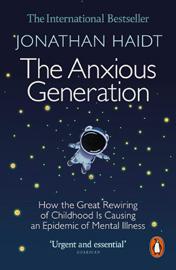
Sarah: And let’s be honest, most grooming cases happen online. If people want to get to our children, they know they can get to them much more easily online. I think we're trying to blind ourselves to that, because it's a scary thought.
SKQ: If there was just one thing you’d recommend families do, what would it be?
Gemma: We encourage families to set a family plan and say, okay, we have these particular rules and we’re all going to stick to them. For example, we don't have social media on our devices; or we all put our phones on the phone station when we get in from school at this time; or we don't have our phones at certain points of the week, maybe Sunday morning. And we all agree to it because we know that children do what parents do far more than what we say.
Sarah: And let your kids catch you out as well. If they find you sitting in your bedroom, doom scrolling, it’s an opportunity to talk. “You're so right, it's really hard to come off the phone and socials”, and help them to understand that you find it hard too. We always remind parents that it's not you versus your child, it's you and your child, or children versus these incredibly powerful tech companies who are using the neuroscience of addiction to keep us all hooked.
What’s interesting is that in the survey we mentioned where the number one thing that parents would change about their children was that they were on screens less, they also asked children ‘what would be the one thing you would change about your parents?’ and they said the same thing. They said they wished their parents were on their screens less too. And this wasn’t even a survey about screens or mobile phones. It was generally about children and parenting and they both said the same thing. We’re all learning how to use these healthily.
Another thing that we often point out is that it is not so much what you are doing on the screen, but noticing what you are no longer doing in real life. It’s about noticing if your kids no longer want to watch television or a film because they are used to YouTube shorts; or that they are no longer doing their sports, no longer meeting up with their friends, no longer reading books, no longer crafting or playing with Lego because they are not getting enough dopamine from it, that’s the warning sign as much as what they are doing on screen.
SKQ: You recently carried out your own research into smartphone ownership and usage amongst children and young people in your area. What were the most surprising findings?
Gemma: There was a huge study which showed, that the younger you were given a smartphone, the worse your mental health was as a young adult today. I know there are obviously other factors in that, but this is the one huge societal change that's happened over that time. Off the back of that, we did our own research, which was more local, because we wanted to prove it was an issue in our area to kind of facilitate work with schools.
And as with national findings, we found that most children in primary school have got a smartphone by the end of Year 4 – that’s eight year olds! And of those children on smartphones, a third of them were on social media in primary school, including Tiktok, Instagram, etc. And that's a worrying statistic when we know the kind of content that can be accessed on those social media platforms. And often children are on those sites without limits and without any supervision, often alone in their bedrooms.
The huge problem with teenagers – and I am sure this is true of primary school children as well – is that they take their phones to bed with them and it interrupts their sleep. They go on it up until they fall asleep and it disrupts the quality of their sleep. We did some research in secondary schools locally, and 80% of 11-13 year olds took their phones to bed with them at night time. That’s just crazy. I think it would make a real difference to our children's and young people's wellbeing, if they were not able to access certain apps past a certain time at night.
We also feel it is significant that we’re only really now seeing the impact of digital devices on young adults’ wellbeing because, of course, the first children and young people to have phones are only now reaching adulthood, where their brains are fully developed at 25. Interestingly, that age group are really spearheading a movement saying, we wish you hadn't given us these devices. We wish we hadn’t had access to social media so young. As parents, we need to wake up and listen to this age group, as well as taking heed of all the research that has come out over the last two years.
SKQ: It seems like a lot of schools are banning phones, what are your thoughts on this?
Sarah: All this really means is that young people can't use them between nine and three. But that doesn't matter if they're then using them for six hours after three o'clock. It’s a bit like green washing. It makes it seem like everyone's doing something about it - the government are pushing to ban them in schools. It’s good, but it’s not what is going to make the real difference.
And for me, it lets the government off the hook a little bit, because they can pretend that they're doing something, but actually they're not doing what’s really needed. They're not helping empower parents and carers, which would make the most significant difference.
Gemma: You'll reduce the hassle for teachers, which is cool, but it’s just not going to have the most significant impact on mental health and well-being.
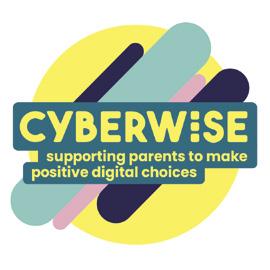
Sarah: We recently finalised the research from teachers and primary staff to see what impact smartphones were having on the primary classroom. We found that something like 96% of teachers are concerned about smartphone use and the impact it's having,
Gemma: And this is smartphone use at home, and the impact it's been having on the children that they are teaching. I think a lot of people think that it’s not a problem because they don't allow smartphones in primary school during the day. But it's not about what's happening at school, it’s the phone use at home that is impacting the school day. That’s why we need parents to help get a better handle on things.
SKQ: What does the future hold for your Cyberwise programme?
Gemma: We are launching our Cyberwise partnership programme to help schools support parents and pupils and help them be at the heart of driving positive change in the classroom but particularly beyond the classroom and at home. It is about encouraging staff, pupils and parents to prioritise digital wellbeing and help them navigate the digital world.
We have 15 schools already signed up, which is excellent. We have a lot of schools who are interested in signing up and would love to be part of the programme but, even though we are not charging much because we are not for profit, they just don’t have the funding. Funding is a major barrier to this kind of learning.
Sarah: Without a doubt, the biggest issue at the forefront of schools’ agenda is funding. They recognise the problem with smartphones and online access and they want to play a central part in addressing it. But when they can’t even fund gluesticks, this kind of work ends up taking a backseat.
If there is anyone interested supporting local schools in their area or in the East Midlands area by helping to fund the Cyberwise programme, then do get in touch with The Conversation about how to make donations.
theconversationstamford.co.uk
I think a lot of people think that it’s not a problem because they don't allow smartphones in primary school during the day. But it's not about what's happening at school, it’s the phone use at home that is impacting the school day. That’s why we need parents to help get a better handle on things.
“
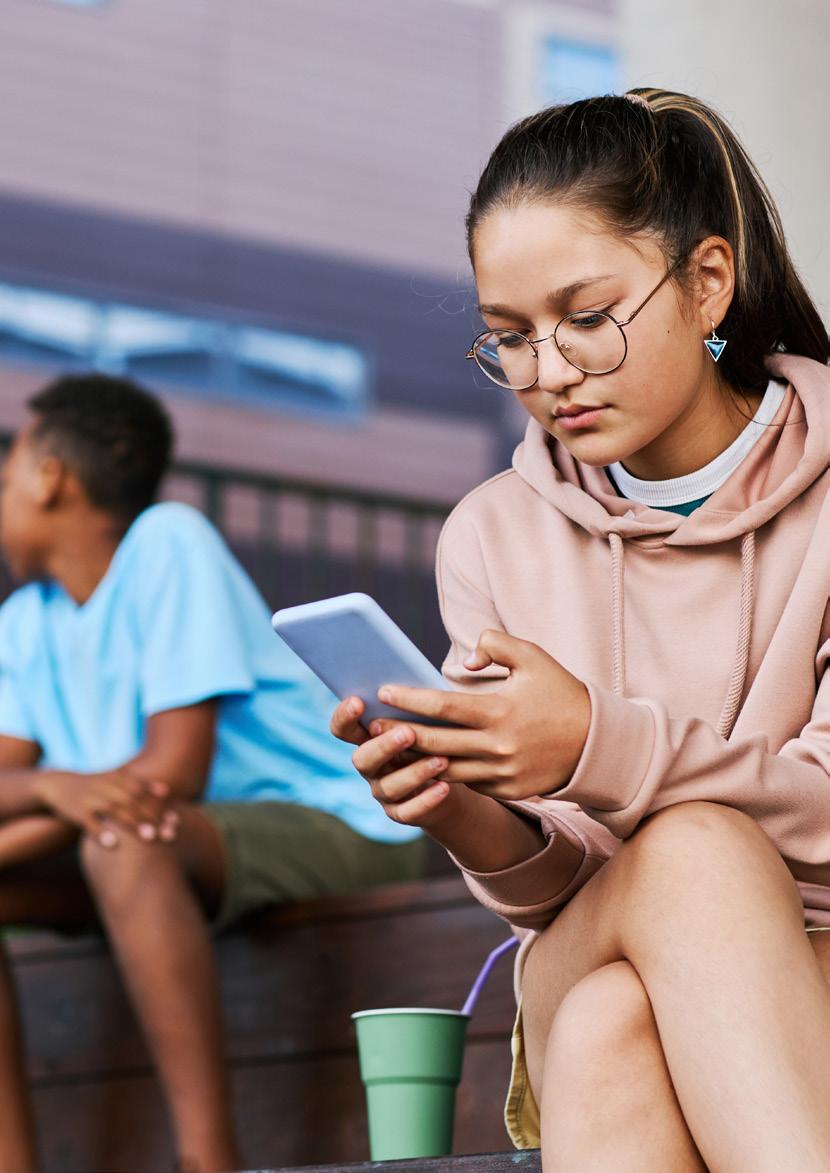
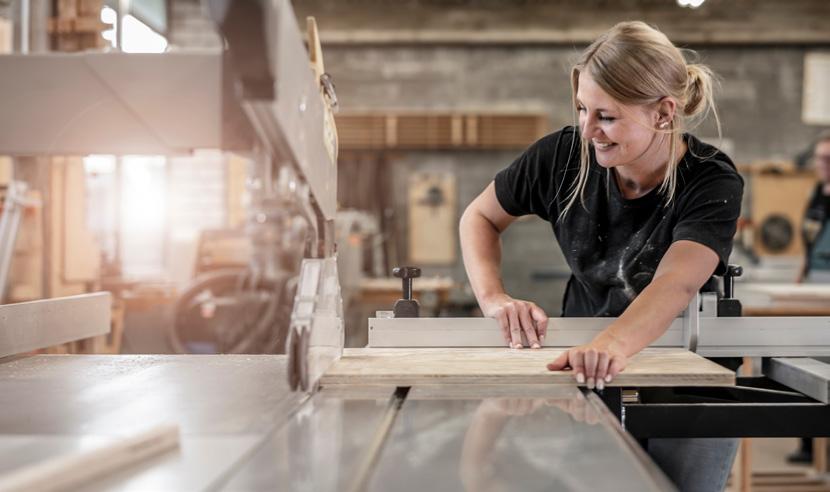
From Locked Out
To Clocking In
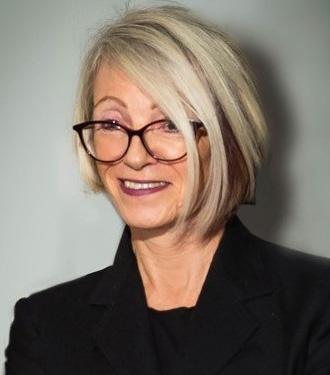
By Fran Findlater OBE, Executive Head
No Going Back
Giving young people with convictions a real chance to rebuild their lives - and transform our workforce
We often say young people are the future of our economy, but right now, many are being left behind. In the UK today, over 750,000 young people aged 16–24 are not in education, employment, or training (NEET). At the same time, employers across sectors report critical skills shortages, from construction and engineering to hospitality and finance.
Young people who have been involved with the criminal justice system are even further from the labour market. While they represent a smaller group, they illustrate a wider challenge: too many are shut out of opportunities that could transform their lives and strengthen our workforce.
For a young person with a criminal record, the first hurdle is often disclosing their past to an employer. Many feel they’ll never be trusted again. At No Going Back, a charity and social enterprise, we work with young people who have been in prison or are at
risk of offending. They are often navigating impossible circumstances: unstable homes, poor mental health, school exclusion, and poverty. These young people don’t just fall through the cracks; the system can feel designed to keep them there.
Support must go deeper than simply providing skills. We look at the whole person. Social enterprises and charities are leading the way here, offering mentoring, trauma-informed care, and pathways to meaningful work.
Our workshops help individuals craft an honest, confident disclosure statement and prepare for interviews. Once they get through the door, many go on to become some of the most loyal and hardworking team members an employer can have.
A report from the Centre for Social Justice estimates that 83% of prison leavers are unemployed on release, and nearly half
I used to have nothing but time — now I know what an alarm clock is for.
are still out of work two years later. Yet employment is one of the single most important factors in reducing reoffending. Prisoners who secure a job after release are up to 50% less likely to reoffend. Employment not only helps rebuild lives but also saves society millions of pounds and contributes to safer, stronger communities.
But this is not just about crime. It’s about investing in untapped potential at a time when we can least afford to waste talent. We all make mistakes when we’re young. For some, those mistakes come with a criminal record, and the consequences can last a lifetime.
Forward-thinking employers are already leading the way, offering apprenticeships, training, and direct employment to young people from challenging backgrounds. These companies often see high levels of loyalty and lower staff turnover. The business case is clear: engaging young people, including those with convictions, means accessing resilient, adaptable, and eager-to-prove-themselves talent.
Tips for young people
Where to start
If you're wondering how to get into work — especially if you feel overlooked — here are some practical steps to get started:
• Build your network early. Connect with local community hubs, youth organisations, and employability programmes. Relationships often matter as much as your CV.
• Consider apprenticeships and traineeships. These allow you to earn while you learn, and many industries, from construction and tech to finance and hospitality, use them to attract fresh, diverse talent.
George and NGB Ambassador
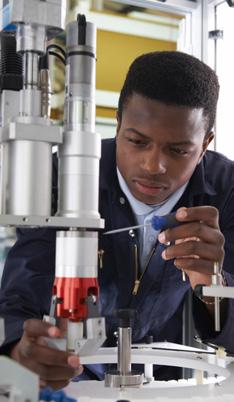
Young people bring fresh perspectives and adaptability, both vital for future growth. With skills shortages pushing up recruitment costs, investing in overlooked talent is not just the right thing to do, it makes strong business sense.
For financial institutions and professional networks like SK Financial, there are also powerful opportunities to support social enterprises working in this space, whether through investment, pro bono expertise, or simply giving them contracts. For example, NGB CLEAN is a highly professional cleaning business that delivers social value by employing and training those we support. It has built a reputation for exceptional service, used increasingly by corporate clients. By changing perceptions, it shifts the narrative not just for young people but for employers too.
Supporting these initiatives creates meaningful impact, strengthens community ties, and builds a more inclusive economy.
We know these stories can spark difficult but vital conversations, at home, in boardrooms, and around dinner tables. It’s easy to define people by the worst thing they’ve done. Much harder, but infinitely more powerful, is to focus on who they can become, and to help them succeed
• Develop your story. If you have a criminal record or gaps in your work history, prepare an honest and confident explanation. Employers value transparency and resilience. Organisations like No Going Back can help you craft your disclosure statement or signpost you to other support.
• Look for volunteer or short-term roles. These can help you build confidence, develop new skills, and show future employers that you’re proactive and motivated.
Who can help
There are many organisations dedicated to supporting young people into work:
• Youth Futures Foundation runs programmes across the UK to help young people prepare for and access employment.
• The Prince’s Trust offers training, mentoring, and start-up support for young entrepreneurs.
• Movement to Work partners with employers to provide work placements for young people not in education or employment.
• Local community organisations and social enterprises, such as Circle Collective and No Going Back, specialise in supporting young people leaving prison or facing other significant barriers.
nogoingback.uk
The Power Of Helping Young People Find Their Voice An Interview with Rachel Higginson
By Jenny Ellery
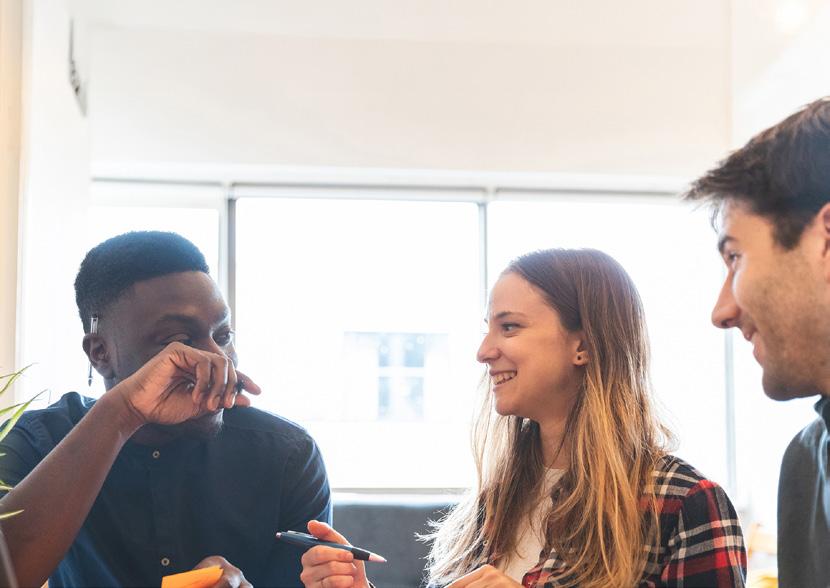
One of the biggest challenges parents, carers and educators face today is figuring out how to successfully prepare our young people for their future, when the future is such an unknown entity. They are growing up in a world so profoundly different to the one most of us grew up in. It’s a world where technology, social media and now AI loom large and the speed of change is unprecedented. It is widely assumed that many of the jobs that today’s young people will get when they finish their education don’t even exist yet.
Thankfully, there are innovative disruptors in the educational sphere who are now really starting to make waves. They are challenging the status quo and adopting new approaches to working with young people. Considering the complexities and technological advances of the world we live in today, their vision is simpler than you might imagine.
“We need to be technology’s better half. We need to complement it by becoming more deeply human. That is how our society will thrive. For our young people today, this human element is more crucial than ever before,” explains Rachel Higginson, Founder of Finding My Voice, a company that works with young people at risk of school exclusion.
“As things stand, we can’t have a view of what we want to be in the future because it is so uncertain, so we need to know who we want to be and know what we want to bring to the world. If we can build that real personal understanding in our young people, then we can have a beautifully complementary society where they can thrive alongside AI, not just survive.”
While the idea here may be a simple one, helping young people to uncover who they really are is not always straightforward. With all the online noise that they have to contend with, it is easy to see how they lose their way and why it is something that actually needs to be explicitly taught. This is exactly what Rachel and her team do day in, day out.
Rachel’s journey began when she wrote a curriculum for a free school. She spent five years researching education all around the world. She was shocked by how narrow our education system still is in terms of what young people need in the modern world. She won the bid for the free school, but also starting taking everything she knew about curriculum building into other schools. She found that in every single one she went to work in, there were kids in corridors; there were kids for whom something wasn’t quite hitting the mark.
And while these young people were always getting decent intervention and support, generally these were either therapeutic –Lego therapy, art therapy, play therapy - or they were academic – phonics, spelling,
reading recovery. There was nothing practical that they could take to help support them in their education, their life or their future. She realised that something had to change.
“We come with a whole tonne of bias about what we perceive education to be. But actually, if you think of it as an experience of building humans rather than an experience of school, I believe it’s a really helpful philosophical position to start from. Coming from this standpoint, I spent a long time researching the most effective ways of working with young people to give them what they need to be fully human in a really fulfilling way. This is when the concept of Finding My Voice was born.”
At Finding My Voice, Rachel works with writer, rapper and teacher, Christian Foley, with Emmanuel Awoyelu, an inclusion specialist teacher who was excluded from school himself as a youngster and Mary Myatt, an education advisor, writer and speaker. The company’s concept is two-fold. One is helping young people to physically find their voice. The team help them become more competent in articulating their emotions, their needs, their thoughts, their feelings and also, most importantly, being able to be authentic in who they really are, rather than who they think they should be.
And then it’s about metaphorically finding their voice. The focus here is on what the young person’s unique spark is that they bring to the world, helping them to really understand that and establish an inner narrative around it. It’s about giving them the confident inner voice of who they really are and the values they hold. It's an approach that Finding My Voice call their Authentic Oracy model.
“One of the first exercises I do is to get the young people to walk into the room and say ‘hi my name is so and so’. They usually start off really nervous and uncomfortable. I have a lot of children cry at having to do this, especially when I work with teenagers as they find it so cringey to say their own name. And then as we work through everything, we coach them on body language, about taking a deep breath, about owning the space, even when you’re feeling very uncomfortable inside. We talk about how by projecting an air of confidence, you immediately rise to that and start to actually feel more confident. It is an incredibly humbling experience to see the evolution of a young person from the first time they say their name, to tutoring them and helping them shift their
inner narrative around to really owning their name and speaking it proudly.”
But their work is not only about helping these young people articulate their name or even their own views and values. It is also about teaching them the importance of listening to others properly, listening with the intent to understand a point of view that is different to their own. As such, a lot of the group work involves learning how to hold balanced conversations by practicing the skill of sharing views, deeply listening to others and coming together better informed at the end. Considering the polarised world we now live in, it’s no surprise that conversations that are built on authentic listening - and not just waiting to speak - is a big part of what Finding My Voice do. And nowhere are these skills more needed than online.
There is so much to learn around how to communicate with each other online. Even for youngsters who have been online all their lives, this is not something that comes naturally. Rachel highlights the fact that, when we talk to someone, words are only a very small part of how we interpret the meaning of what is being said (just 17.5%, according to the research). The rest comes from tone of voice, gestures, eye contact and how we’re interacting in that moment. It is deeply intuitive.
“When we interact online, we only have words and when they sit on their own, these words can be interpreted in a plethora of ways. But actually emojis are a great tool here. At first, I was quite a snob about emojis but now I understand their significance. Once you add a sideways laughing face, you suddenly change the tone of those words. So we try to show our young people how to soften their interactions using emojis – it’s an easy win. But we also go deeper of course. We help them to see how others might perceive their words; to consider how they would receive those words themselves and how we, as naturally anxious human beings, can over analyse and misinterpret what others are saying and doing, especially online.”
Helping young people successfully navigate the online world is not easy. They are always going to be one step ahead of us in that realm, because they are digital natives. They have always been online; they have always had social media and they’ve never known anything different. For Rachel, there’s little doubt that this has impacted young people’s sense of self and again underlines the importance of the work they do. Her belief is that when you
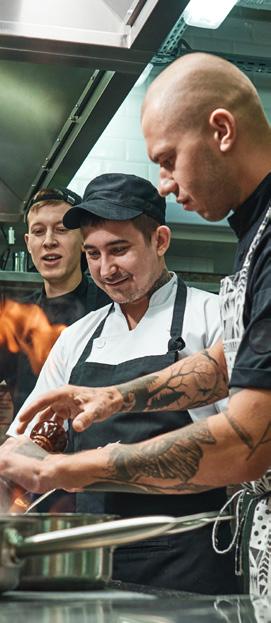
“
Her belief is that when you deepen your knowledge of yourself and what you bring to the world, you are better equipped to sit outside all the online noise, the distorted narratives and harmful content that prevail online and can cause so much damage to our young people’s well-being.
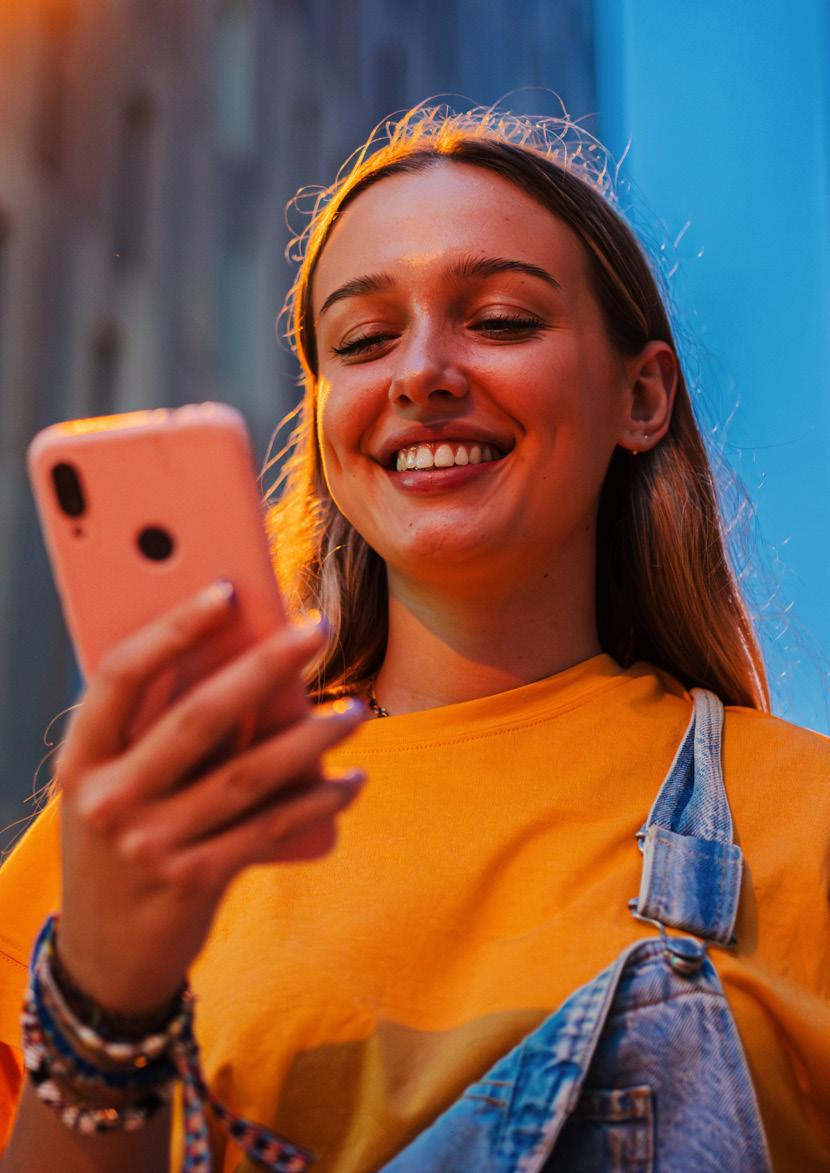
“
But each project based piece of work is very high challenge. It’s not therapeutic, where we would sit back and do something low demand, we aim for an exhibition or performance, or sharing it with someone. The most important part of it is that there is an element of risk. Because we grow when we challenge ourselves.
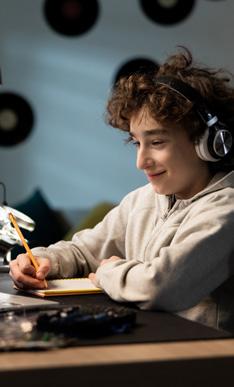
deepen your knowledge of yourself and what you bring to the world, you are better equipped to sit outside all the online noise, the distorted narratives and harmful content that prevail online and can cause so much damage to our young people’s well-being.
As part of her role, Rachel spends a lot of time on social media. She plays around with TikTok and has witnessed first-hand how easy it is to access harmful content. Shockingly, it usually takes her just 27 seconds. She recently found the week’s most common hashtag for young people on TikTok. The first 10 videos that came up were, in her own words, ‘fairly hardcore pornography’. Just to clarify, the legal age for TikTok is 13, but children as young as seven or eight regularly spend time on the app.
“For me, it is an emergency. It shouldn’t be happening and we obviously need much greater legislation. But in the meantime, we not only need our young people to think about who they want to be as authentic individuals, we need them to be able to interact with what they are seeing online in a really critical way.”
All this is only really possible when young people start to better understand themselves and are empowered to make informed judgements and decisions. It comes from a place of genuine confidence, trust in themselves and a deep felt sense of self-worth, something that they need a helping hand to master.
Rachel is, by her own admission, obsessed with motivational theory and the idea of belonging. One of the most established pieces of research around this is Self Determination Theory and this forms the theoretical basis for what Finding My Voice do in their sessions.
Two researchers, Deci and Ryan, were working in prisons in America in a therapeutic field. They found that people who had high levels of extrinsic motivation, where they were motivated by others through praise and rewards, were more likely to reoffend compared to those with high levels of intrinsic motivation, who had an inner voice of confidence and didn’t need to be told ‘well done’.
Deci and Ryan went on to produce a piece of research on intrinsic motivation which formed the Self Determination Theory. Here, they identified three prevalent features of someone with intrinsic motivation - relatedness, competency and autonomy.
“Relatedness is about understanding mutual value. It’s not just that I’m there to help the Finding My Voice kids, I immediately make them aware of what they bring to me. Every young person has something idiosyncratic and beautiful about them. So I go on a journey to try and map that for them and reflect it back. Sometimes, it’ll be something they tell me about, in which case I simply make that richer for them. But quite often the young people that I work with don’t believe they bring anything to the world. In fact, a lot of them believe they only bring negative things, that they are an inconvenience, that they’re trouble and that their lives are heading in the wrong direction. So reflecting their value back to them with my language really helps to build their inner narrative of who they are and what they bring to the world.”
When it comes to competency, Deci and Ryan noted that humans are evolutionary creatures. We like to feel like we’re getting better at things. We like to be challenged and we like to do hard work. So within these sessions, it’s important to identify an area or skill that each young person needs to work on.
“It might be things like an incredible art skill that just needs to be developed more, so we do an art project. I have had young people who have discovered they are incredible singers, so we do a music project. But each project based piece of work is very high challenge. It’s not therapeutic, where we would sit back and do something low demand, we aim for an exhibition or performance, or sharing it with someone. The most important part of it is that there is an element of risk. Because we grow when we challenge ourselves.
"Once they have achieved all this, we can focus on autonomy. For me, this is when the habits are imbedded. We’ve shifted to where that inner voice is beautifully honed and is ready to live on its own in the world. It’s about me stepping away, giving them the autonomy to continue to build their positive intrinsic sense of self.”
By giving young people the time, space and support they need to learn how to really connect with themselves in a meaningful way, Finding My Voice hopes to empower them to navigate both the physical and online worlds with a new found and deeply felt confidence and authenticity. Maybe this is something we would all benefit from being able to do.
findingmyvoice.co.uk
The Importance Of Early Years Parenting: A Mother’s Perspective
By Susan Barry Director for Charities at the Haberdashers’ Company
I’ve been talking constantly to my daughter since the very moment she was born. Even as the paediatrician checked her over on the other side of the delivery suite, I was calling to her, using her brandnew name, simply letting her know I was there.
I remember walking around the local neighbourhood with her strapped into her harness, inward facing when she was tiny, outward facing as she grew. I would comment on the things we saw: the leaves on the trees (do you think there are birds’ nests in that tree?), the tiny mounds of moss on the wall (I wonder if fairies live on those?), the people on the bus (hello, tiny person!).
But only now as I look back – as the mother of a spirited ten-yearold and someone whose work revolves around the needs of young people – do I realise how crucial these interactions were for my daughter. Not only that, but also how lucky I was that I had the headspace and capacity to parent in this way. For many parents, this is not the case. As a result, children miss out on these hugely impactful moments that form such a vital part of a child’s early years’ education.
‘Early years’ is the learning and care a child receives up to age five. This is mostly defined as the learning in formal settings such as nurseries and with child minders. But a crucial part of this takes place in the home, in the interactions a child has with their loved ones.
“
Don’t get me wrong; it was utterly relentless, I was exhausted, and there were plenty of tough times. But fundamentally I was okay.
The United Nations children’s agency, UNICEF, says that ‘Over 80 percent of a child's brain is formed by the age of three. Whatever happens during this period has a lasting effect on a child’s future well-being, and there is only one chance to get it right’.
I was so fortunate. Communicating with my child came easily to me. Providing building blocks of social interactions with others were part of my daily activities. Trips to the local playground were frequent, I was able to get out and about and had green spaces nearby. Aside from a small blip in the months immediately following her birth, my mental health was good. I read to her daily. I had decent maternity leave from my employer, making it relatively easy to take time off to spend every day of her first year with her. Crucially, this was financially possible, and after her first birthday she went to a brilliant childminder (while I was able to go back to work part time) and then to a local nursery.
Don’t get me wrong; it was utterly relentless, I was exhausted, and there were plenty of tough times. But fundamentally I was okay.
I offer my own reflections on early years parenting not to big myself up, but to highlight how many things need to be in place to allow this kind of parenting to happen. For those of us who were able to spend time with our children in this way, it can be easy to take our circumstances for granted. It can seem so simple. But it really isn’t.
Home-Start Southwark is a charity that works with families with children who are five years old and younger. They list the possible reasons families need support – it is not about someone being a bad parent, the circumstances are often complex and nuance:
• Feeling isolated; a need to build a support network
• Experiencing poor mental health; finding it hard to talk to anyone about it
• Struggling with the effects of poverty or inadequate housing
• Struggling to cope with a child’s or their own illness or disability
• Experiencing relationship difficulties
• Feeling exhausted or depressed
• A need for guidance or support with play, child’s development, behaviour, healthy choices, school readiness
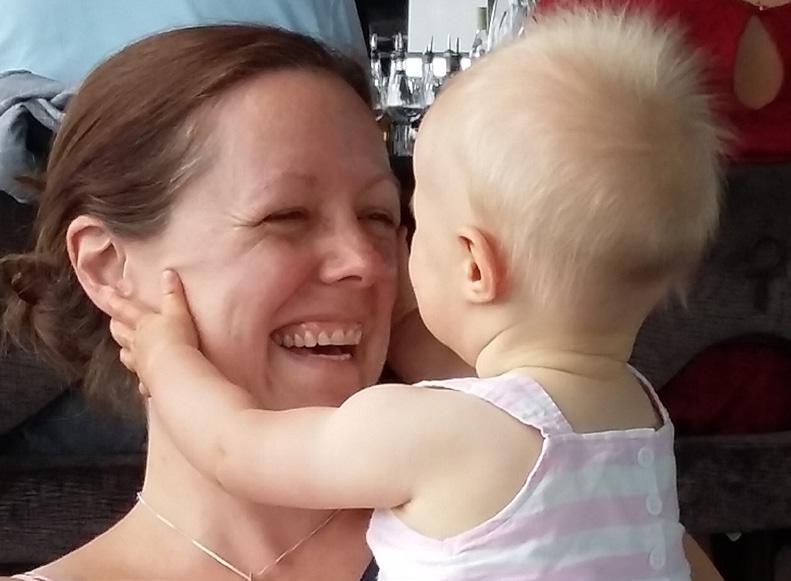
One family Home-Start Southwark helped was a mother of a four year old and baby twins. When the twins arrived, the four year old stopped going to nursery. They were isolated. They were not getting out and about in their community. Why? Because there were stairs outside their home. Mum simply couldn’t get the twins safely down the stairs without an extra pair of hands. It may not occur to you that something as simple as having stairs could be a barrier to getting your family out and about. But if you’ve ever seen a twin buggy, you can probably start to imagine the challenge this mum faced….especially after labour. Home-Start Southwark was able to work with this Mum to find the solutions her young family needed.
I work for the Haberdashers’ Company. The company funds charities that work with children and young people, by way of complementing the work that goes on in Haberdasher schools. Home-Start Southwark is one of those charities. We have deliberately chosen to support them with a grant over three years to fund their transformational work. They are embedded in the local community and understand what families need.
Given that the early years create vital foundations for a child, it’s crucial that we help parents have access to the resources they need. We want them to be the very best they can be for their child.
For me these days, there is far less talking to my daughter: the roles have reversed! I spend far more time listening as she chats to me constantly, from the little stuff (mummy, look at my handstand!) to the big stuff (mummy, what happens if you don’t want to have a baby?). Only now do I realise that this is almost certainly linked to how I was able to engage with her in her early years, and how the interventions she has had since then have been pivotal in who she is today and the young woman she will become.
Not every parent is as lucky as I am, to have had everything in place to parent in the way they wish they could. I am grateful too, for charities like Home-Start Southwark, and that the Haberdashers’ Company spots the need to fund their work. I continue to be incredibly grateful for the early years of her life. In a way, she is still strapped in safely to that harness, as I help her navigate the next stage of her development.
homestartsouthwark.org.uk
“
Young people need models, not critics.
JOHN WOODEN
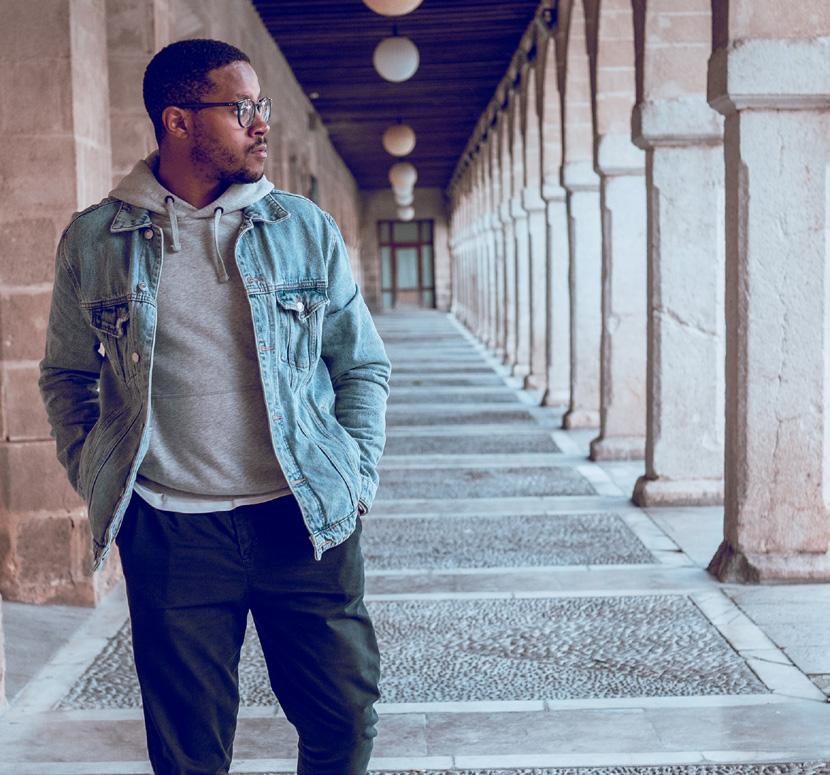
The value of your investments (and any income from them) can go down as well as up and you may not get back the full amount you invested. Past performance is not a reliable indicator of future performance. Investments should be considered over the longer term and should fit in with your overall attitude to risk and financial circumstances.
Your home is at risk if you do not keep up repayments on a mortgage or other loan secured on it.
This document is distributed for information purposes and should not be considered investment or other advice or an offer of any product/security for sale. This document contains the opinions of the authors but not necessarily the firm and does not represent a recommendation of any particular security, strategy or product. Information contained herein has been obtained from sources believed to be reliable, but is not guaranteed.
